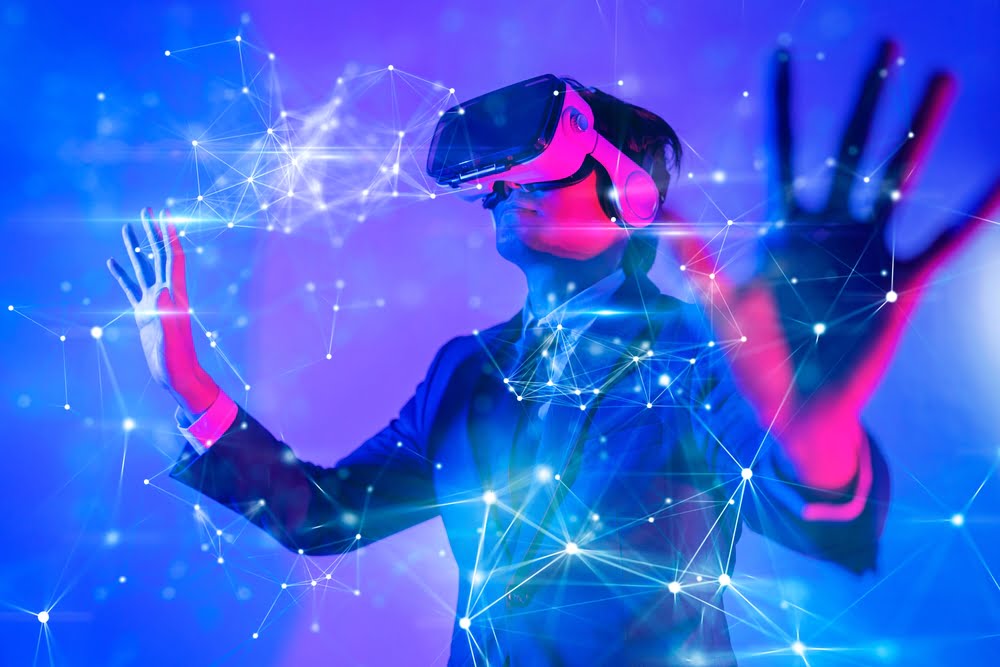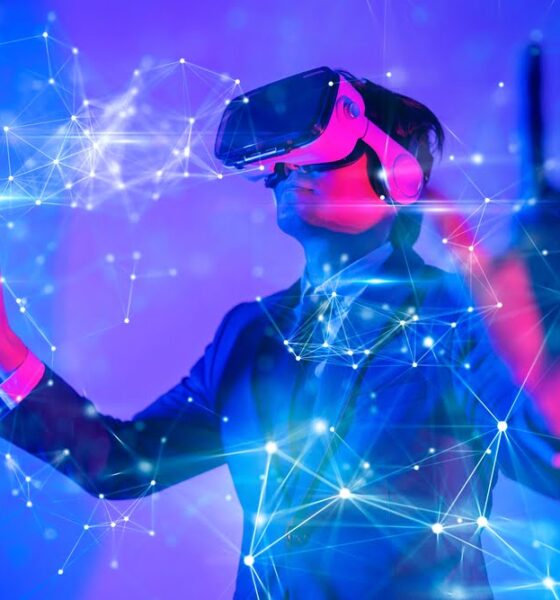

Features
How The Metaverse Infiltrates Our Lives and the Environment
People are more concerned about the planet than ever. An April poll by Gallup showed between 59% and 89% of Americans supported every proposed federal initiative to help the planet.
However, many people aren’t worried enough about some major changes that could be harming the planet. This includes technological developments like the metaverse.
We rarely stop to think of all of the things that affect our lives and the planet we live in. As a growing number of people become concerned about sustainability, they are only beginning to think about the ways that they can lower their carbon footprint.
One trend that is affecting the planet in unanticipated ways is the metaverse. As an eco-conscious consumer, you are going to want to think about the impact of the metaverse on the planet. Of course, you should also think about the ways that it affects our lives as well. It is an example of how technology could either destroy or save the planet.
What is the Metaverse and How Does it Change the Planet?
The word “metaverse” has become popular in recent years, thanks in part to Facebook, although the concept isn’t new. Many in the technology world have anticipated a future form of the internet termed the “metaverse” since the late 1970s and early 1980s.
Although the whole metaverse and nft explained is difficult to explain, appears outlandish, and is decades away, many elements have begun to feel very real. With this type of transformation, the journey is as long and unexpected as the payoff. The metaverse is three-dimensional and multisensory, whereas the internet is two-dimensional — text and images on flat displays.
But what is the metaverse, exactly, and what does it represent in everyday life?
More importantly, what impact does the metaverse have on the environment? This is a crucial question for eco-friendly citizens to answer. We will delve into the changes the metaverse has had on our daily lives, before we talk about the impact it is having on planet.
The Metaverse Is…
A unified and interoperable virtual area where users may employ technology to engage with one another and the 3D digital environment. The metaverse isn’t wholly new; it’s a natural extension of current virtual reality technical advancements. Extended reality (XR) is the metaverse’s core technology, which incorporates virtual reality (VR), augmented reality (AR), and mixed reality (MR). The metaverse is essentially a product or service, with basic characteristics such as synchronization and interoperability.
It’s important to note that the metaverse and blockchain are not synonymous. Blockchain technology is not required for the creation of a metaverse. The operations and transactions carried out in the metaverse, on the other hand, need a high level of security and speed, which is best delivered by blockchain. A metaverse can use blockchain technology and crypto assets to validate evidence of ownership of digital assets in both the virtual and real worlds, for example, by deploying non-fungible tokens (NFTs).
Some Companies Are Already Using The Metaverse
The metaverse is already being used in the game industry to allow players to engage with each other and with the digital environment. Virtual reality gaming has been available as a separate program for some time, which may be loaded on a desktop computer, virtual reality headset, or mobile phone to play video games. The in-game experience can now appear in a 3D virtual reality metaverse that can be seen at 360° thanks to advanced human-to-computer interface technology and software. Users may be able to navigate with the same players in numerous physical areas thanks to the technology, which may connect multiple games to a single interoperable environment. Decentraland, Sandbox, Epic Games, and Meta are just a few of the game companies that are already utilizing the metaverse.
Given these characteristics, it’s no surprise that the sports industry is going into the metaverse as well. Through immersive features, the metaverse can improve the sports viewing experience. Rather than just watching a team play on a screen, fans may virtually attend the game. Technology may also alter how individuals participate in sports. Consider boxing: spectators may enter a boxing ring to fight with a computer-generated opponent. Multiview and simultaneous playback technologies can also be implemented, giving athletes and viewers additional opportunities.
Fashion is a third sector where the metaverse is invading industry. Ralph Lauren, Gucci, Tommy Hilfiger, Nike, and Fendi are among the brands that have undertaken metaverse projects. Balenciaga, for example, launched a Fortnite collection featuring characters in hoodies, all of which could be purchased using the game’s virtual currency. Emerging fashion labels are also foraying into the metaverse, with some designers releasing avatars that can be customized. Buyers may be interested in this digital fashion because of its creative worth, the possibility of a price increase, and the desire to show it off to others.
NFTs In The Metaverse
As previously said, the metaverse may be constructed on blockchain technology, and metaverse functions and transactions demand a high level of security and speed. Interoperable video game technology, for example, allows users to transfer digital assets across games; web3 video games currently provide this capability via NFTs. The Sandbox crypto metaverse video game, for example, is built on user-generated NFTs that can be bought and merged into a virtual world. NFTs can also be used in sports to verify participation in virtual teams or leagues. And, as Dolce & Gabbana’s Alta Moda presentation did last September, some apparel collections presented in the metaverse are being attached to NFTs.
Real Estate And E-Commerce Are Next
Facebook’s statement on Oct. 28 that it was rebranding as Meta to focus on the metaverse spurred a rush to acquire metaverse real estate. In November, virtual real estate sales increased ninefold to $133 million, with Sandbox, Decentraland, Cryptovoxels, and Somnium dominating the market. In 2021, sales of metaverse real estate totalled moreover $500 million. According to BrandEssence Market Research, the metaverse real estate market would increase at a compound annual rate of 31% between 2022 and 2028. At the same time, numerous questions concerning the metaverse’s real estate pricing, sustainability, and long-term prospects persist.
The metaverse will have a big impact on e-commerce, allowing customers to have more tailored buying experiences. Online purchasers may be able to communicate with other users and interact with products using their avatars. Customers may also be able to style their products themselves in digital marketplaces. In general, the metaverse might provide a more immersive buying experience.
But How Does the Metaverse Affect the Planet?
If you are truly concerned about sustainability, you will need to think about the different ways technological trends like the metaverse are affecting the planet. The metaverse is no exception.
Lizzy Rosenberg of the World Economic Forum shared some insights based on new research on the topic. She stated that experts are worried that the metaverse is going to create massive greenhouse emissions, because it depends heavily on cloud computing and AI. These technologies depend on massive amounts of energy, which obviously leaves a large carbon footprint.
The good news is that there are some solutions to reduce the carbon footprint of the metaverse. The three options that Rosenberg outlined include:
- Streaming in SD
- Purchasing second hand electronics
- Finding effective ways to recycle e-waste
Fortunately, the metaverse can also help lower our carbon footprint in other ways. This includes lowering our dependence on certain physical goods that have a large carbon footprint.
The answer to the question: “is the metaverse bad for the environment “can’t be answered yet. The jury is still out since the technology is evolving and it has both positive and negative effects.
Metaverse Has a Strong Impact on Our Lives and the Planet
Technology can change the planet and our lives in complex ways. The metaverse is a huge example.
In the metaverse virtual environment, people would be able to do almost whatever they could in the real world. As a result, we might speculate that the metaverse will have an overall impact on our lives, affecting everything from future businesses to social activities to ordinary human relationships. The metaverse is also having a complicated impact on the planet.
The future reality of the metaverse is taking shape, but it’s not quite ready yet. It’ll only be a matter of time until we see what this new frontier has in store for us.


 Environment12 months ago
Environment12 months agoAre Polymer Banknotes: an Eco-Friendly Trend or a Groundswell?

 Features11 months ago
Features11 months agoEco-Friendly Cryptocurrencies: Sustainable Investment Choices

 Energy11 months ago
Energy11 months agoThe Growing Role of Solar Panels in Ireland’s Energy Future

 Energy12 months ago
Energy12 months agoHow Renewable Energy Can Help Combat Climate Change, According to Indra Energy




























